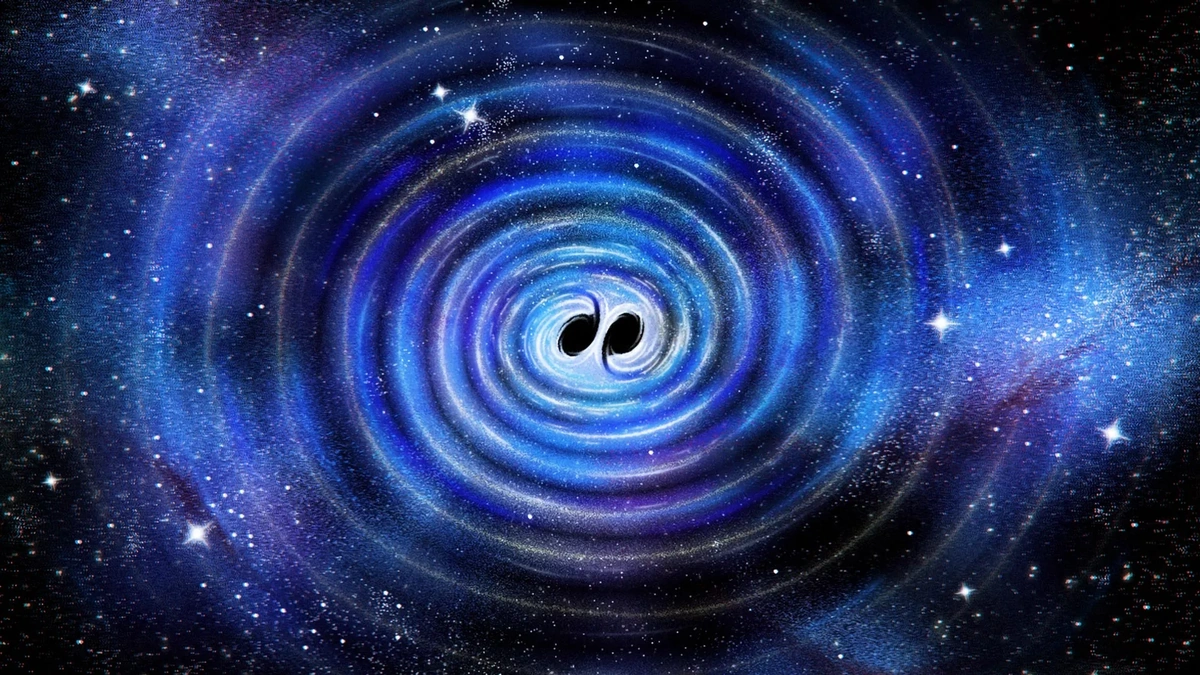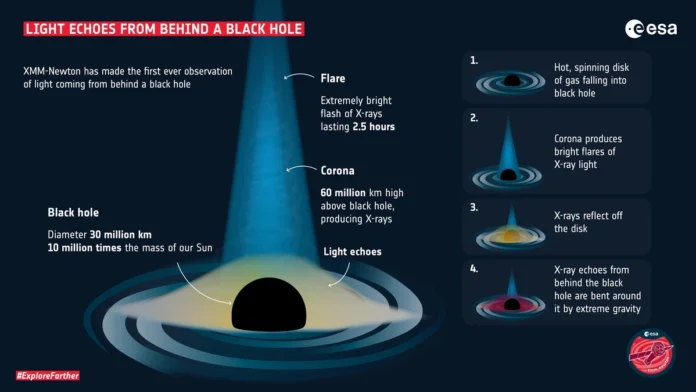Okay, let’s be honest. Black holes have always seemed more like science fiction than science fact, right? But here’s the thing: they’re real. And a recent cosmic collision – a jaw-dropping event observed by scientists – has just delivered a major win for Stephen Hawking’s theories about black holes, theories he proposed almost half a century ago. What fascinates me is not just the confirmation itself, but why this confirmation matters so much, and what it tells us about the universe we live in. This isn’t just an academic exercise; it’s a peek behind the curtain of reality.
Why This Black Hole Prediction Matters – Beyond the Headlines

So, you might be thinking, “Okay, great, another thing scientists figured out.” But this isn’t just another discovery. This confirmation validates a fundamental aspect of black hole physics . Hawking predicted that the surface area of a black hole’s event horizon – the point of no return – can never decrease. It’s a concept intimately tied to entropy and the very nature of information in the universe. And as per the latest report, the collision of two black holes produced a final black hole with an event horizon area consistent with or slightly larger than the sum of the event horizon areas of the initial black holes. This aligns with Hawking’s area theorem and reinforces our understanding of these extreme objects. Click here to learn more about the wonders of the cosmos.
Think of it this way: Imagine burning a piece of paper. The paper is gone, but the information – the arrangement of its atoms – still exists, albeit in a scattered form as ash and smoke. Hawking’s work suggests something similar for black holes. The total amount of “information” (in the form of entropy) associated with a black hole can’t be destroyed. This is a huge deal because it challenges our understanding of how information behaves in the universe, especially when it encounters something as seemingly destructive as a black hole. But, that’s not all, let’s discuss more what is coming.
The ‘How’ | Observing the Unobservable
Now, for the really mind-bending part: How do you even see a black hole collision? They’re black, after all. Well, that’s where gravitational waves come in. These ripples in spacetime, predicted by Einstein, are created when massive objects accelerate – like, say, two black holes spiraling into each other at a significant fraction of the speed of light. When these gravitational waves reach Earth, incredibly sensitive detectors like LIGO (Laser Interferometer Gravitational-Wave Observatory) can pick them up.
The signal from this particular collision was so clear and strong that it allowed scientists to precisely measure the properties of the final black hole – including the area of its event horizon. And what they found was astonishingly consistent with Hawking’s predictions. It’s like hearing a faint echo from the edge of the universe, carrying a message from one of the most enigmatic objects in existence. These detectors are like cosmic ears, listening to the whispers of the universe and allowing us to “see” things that are otherwise invisible. It also gives us hope that science will soon be able to solve every secret of the universe.
Decoding the Cosmic Symphony | Advanced Interferometry
The Laser Interferometer Gravitational-Wave Observatory (LIGO) and Virgo collaborations didn’t just stumble upon this data. It’s the culmination of years of painstaking work. These facilities use advanced interferometry to detect tiny changes in the length of their arms, caused by passing gravitational waves . This technique requires insane precision, like measuring the distance to the nearest star to the accuracy of the width of a human hair.
But, the beauty of the recent discovery is not just about affirming a theoretical concept. It’s a testament to human ingenuity and our persistent quest to understand the universe. It highlights the importance of investing in fundamental research and building sophisticated tools that can probe the deepest mysteries of reality. These projects serve as pillars for the expansion of our cosmic understanding and open new avenues for inquiry. We are just getting started!
The Emotional Connection | A Legacy Confirmed
Let’s be honest, there’s something deeply satisfying about seeing a prediction made decades ago, by one of the most brilliant minds of our time, proven correct. Stephen Hawking, despite his physical limitations, possessed an unparalleled ability to conceptualize the universe. This confirmation is a tribute to his intellectual legacy. It’s a reminder that even the most abstract theories can have profound implications for our understanding of the cosmos. This isn’t just about Hawking’s area theorem ; it’s about honoring the power of human intellect and the enduring quest for knowledge.
Think about it – Hawking spent his life grappling with the most profound questions about the universe, often pushing the boundaries of what was thought possible. His work on black holes, in particular, revolutionized our understanding of these bizarre objects. To see his predictions validated by direct observation is not just a scientific triumph; it’s a victory for the human spirit. We might not fully grasp all the nuances of black hole physics , but we can appreciate the beauty and elegance of the universe, and the dedication of those who seek to unravel its mysteries. What a joy to see this happening in our lifetime. I am getting goosebumps as I am writing this article! But, you know what is even more exciting? We are constantly discovering more about space and the universe!
Future Implications and Quantum Gravity
This discovery has implications far beyond just confirming Hawking’s predictions. It opens new avenues for exploring the connection between general relativity and quantum mechanics – two pillars of modern physics that have yet to be fully reconciled. Black holes are unique environments where these two theories collide, and studying them can provide valuable clues about the nature of quantum gravity .
As technology evolves and more sensitive detectors come online, we can expect even more exciting discoveries about black holes. The future holds the promise of mapping the black hole event horizon in greater detail, probing their interiors, and perhaps even unlocking the secrets of the early universe. The journey of discovery continues, driven by our insatiable curiosity and the unwavering belief that the universe is ultimately knowable. See here why looking at the space is so important!
FAQ
Frequently Asked Questions
What exactly is Hawking’s area theorem?
Hawking’s area theorem states that the total surface area of the event horizon of a black hole can never decrease. This is related to the concept of entropy and suggests that information is not entirely lost when something falls into a black hole.
How do scientists detect gravitational waves?
Scientists use incredibly sensitive instruments called interferometers, like LIGO, to detect gravitational waves. These instruments measure tiny changes in the length of their arms caused by the passing waves.
Why is this confirmation so important?
This confirmation validates a fundamental aspect of black hole physics and strengthens our understanding of the relationship between general relativity, quantum mechanics, and the nature of information in the universe.
What are the future implications of this discovery?
This discovery opens new avenues for exploring the connection between general relativity and quantum mechanics, and paves the way for more detailed studies of black holes and the early universe.
Are black holes dangerous to Earth?
No, the black holes we’ve discovered are located at vast distances from Earth and pose no threat to our planet. You don’t have to worry.
Will we ever be able to travel to a black hole?
While the idea is fascinating, the extreme conditions near a black hole, including intense gravitational forces and radiation, make it highly unlikely that humans will be able to travel to one in the foreseeable future.

